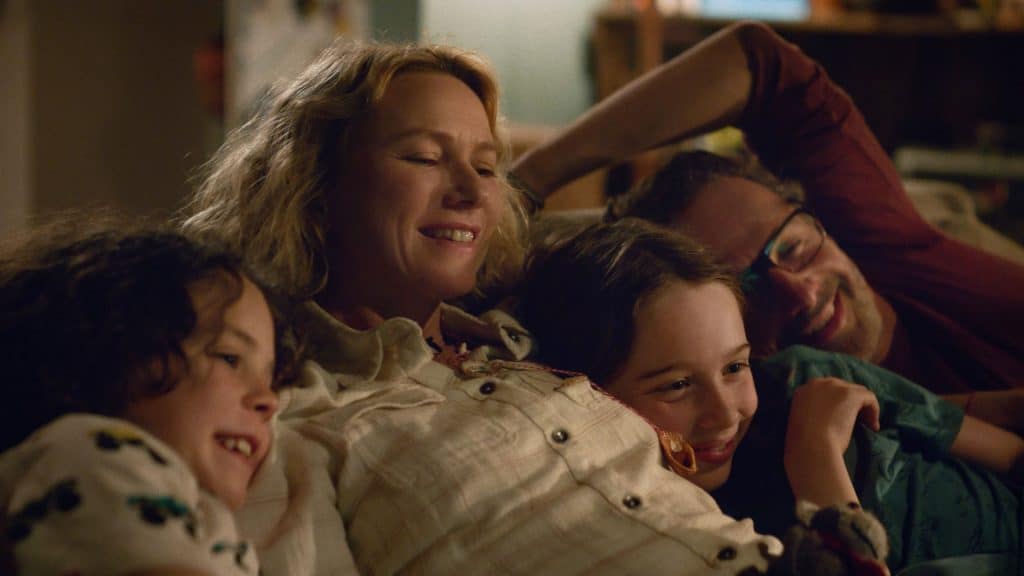Read also:
How to Watch FX Live Without CableHow To Watch AMC Without CableHow to Watch ABC Without CableHow to Watch Paramount Network Without CableNaomi Watts and Andrew Lincoln struggle predictably in the wake of a debilitating accident, and don’t dig too deep below the surface of what it means to be disabled.
Penguin Bloom director Glendyn Ivin is one of the leading names in Australian television, which checks out all too well given that the execution of this admittedly inspirational story has “made-for-TV” written all over it. Of course, the real frustrating part is that there are occasional glimpses of a better movie that’s focused on exploring these characters beyond a surface-level peek of what it’s like to come to terms with a disability or be a caretaker for someone who’s disabled.
Based on real people and events, Penguin Bloom follows the eponymous Bloom family — mom Sam (Naomi Watts), dad Cam (Andrew Lincoln), and their three young boys, all relatively close in age. The eldest of them is Noah (Griffin Murray-Johnston, making his debut performance), who also seems to have been the center of the narrative at one point, considering he serves as a narrator and certain events are seen through his perspective.
The script from Harry Cripps and Shaun Grant, adapting the book of the same name by Bradley Trevor Grieve and Cameron Bloom himself, comes across as indecisive. It doesn’t know who or what it actually wants to hone in on. One wonders if it’s a failed translation, or if it’s also like that on the page.

Nevertheless, Noah recounts a recent Thai vacation where their idyllic family life was turned upside down: Sam leaned on a 15-year-old rusted ledge atop a tower that immediately gave way, causing her to fall to the ground shattering her spine. While Sam survives, she’s confined to a wheelchair with only a decent amount of upper body strength. Naturally, she goes through the depression that comes from having her physically active life of swimming and parenting upended. Meanwhile, Noah feels overwhelming guilt for proposing the idea of climbing the tower in the first place.
It’s here you figure out that Penguin Bloom doesn’t know how it wants to tell this story. We’ve all seen Hollywood stars mining the physical challenges of a handicapped performance for all it’s worth, but this film is saddled with an overabundance of sappiness and forced melodrama. Noah’s processing of the new family dynamic disappears to the point where, even when his feelings do come back into the spotlight, it’s hard to feel anything since he’s been long forgotten about as a character. Then there’s Cam and grandmother Jan (Jacki Weaver), who mean well but accidentally speak to Sam with no small amount of condescension.
In the middle of all this, the family comes across an injured magpie (which they name “Penguin”, hence the title) which they nurse and let back into the wild when it can fly again. The disability parallels are the farthest thing from subtle: Sam goes from disdain for the adorable creature to being inspired by its resilience, chucking through life (which starts to include breaking objects around the house) while slowly healing.
At the very least, their interactions allow for some playfulness, most notably with a whimsical montage where Sam chases the bird around the house with her wheelchair. The film could have done with more of that and less of the cheesy disability porn, which never lands anyway since there’s never really an emotional connection to the characters.
We’ve all seen Hollywood stars mining the physical challenges of a handicapped performance for all it’s worth, but this film is saddled with an overabundance of sappiness and forced melodrama.
There are scenes hinting at some authentic drama and a desire to touch on the ways individuals can problematically communicate with disabled individuals. It’s unfortunate, then, that the rest is bogged down in cookie-cutter sentimentalism. Weaver herself feels held back, as if the film is afraid to turn her loose as the overbearing paternal figure that sees her daughter as helpless.
That lack of commitment waters down what would have been an effective juxtaposition with Cam’s marked growth when it comes to learning how to live with a disabled person. If anything, Weaver and Lincoln give the best performances, while the cuteness of the magpie and the warm Australian beaches (complete with the sounds of buoy bells tolling) are the only reasons to watch.
That’s not to say Penguin Bloom fails at conveying what it’s like to live with a disability, because it doesn’t. But it’s a misfire in terms of making any of this worth caring about. It’s not overly manipulative, but it’s clear that characters are secondary priorities to unearned tearjerking. I’m not even sure hiring an actual disabled person to play the part instead of Watts would have mattered — the problems are on the page and in the direction, not her acting. She doesn’t come across as false; the film as a whole, though, is corny and confused.
Penguin Bloom hits Netflix on January 27th.